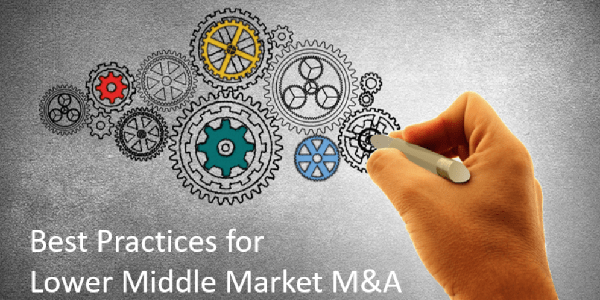Managing Emotions in Mergers and Acquisitions (Part 2)
By Sergio Bruno, Italy Partner at Global PMI Partners
The analysis of feelings during an M&A is a rather new field of study. Partly due to the fact that the overall analytical study of feelings and emotions is also a rather new field of study.
We are not going into the field of psychoanalysis here! We’ll focus on the feelings that people have during an M&A, in particular during a post-merger integration (PMI) project. We will explore how feelings impact the progress of the integration project itself and how we can manage them.
In our experience at Global PMI Partners, we’ve found a certain set of feelings play out rather often during an Integration project. We’ll keep our focus on business implication and, for simplicity, not enter into the details between feelings and emotions, nor the distinction between basic and complex feelings.
During an M&A integration project, we found two macro-categories of feelings:
- Defensive
- Active
DEFENSIVE EMOTIONS
The defensive category is the most widespread. We can easily understand why: in many cases an M&A is the event that implies the biggest changes in an organization. Technology, globalization, and regulatory often implies big changes. But an M&A often implies all these changes plus other deep changes in the organization, such as in culture and in the day-by-day way of people working!
A few examples:
1) The owner of a company sells his/her company and becomes an employee of the acquiring company. He/she moves from being the only decision maker to being one among many managers who must report to a CEO.
2) A company, with a traditional hierarchical structure, is acquired by a large company with a matrix organization. The employees move form having one and only one well identified boss to having one boss for his/her country, another boss for his/her function, another boss for his/her service or product line, and another boss for his/her client segment. A bit more confusing?
Do not forget that the job that a person does, in many cases, contributes deeply to his/her individual identity. It is rather common to hear something like “I’m the CFO of the company XYZ”, “I’m an employee of the company XYZ”. People say: “I am the CFO…”. Only a few say: “I work as a CFO for…” or “I work as an employee of …”. Even our language has a widely used form that overlaps the identity of the person with the job.
Of course, in these cases, if you change something in the job (perhaps during an M&A organization change), you are changing their perception of their own individual identity.
We all know that changing your car is very easy, changing your opinions is not so difficult, but changing your habits or ignoring your feelings during a big change is almost impossible.
When people in a company adopt a defensive behavior, the company cannot be changed just by making structural changes. You need to dig a bit deeper and use your Emotional Intelligence to understand the reasons behind their behavior.
Here is a list of the most common feelings in this category: Fear, Disillusion, Shame, Envy
FEAR
“I’m afraid I’m not doing my job right”
“Why I was not invited to the meeting?”
“Am I going to be fired?”
Fear was – historically – a good and useful feeling. Fear was a normal reaction towards something that we perceived as dangerous and it was aimed at having our body prepared for fighting the danger or escaping from the danger. Think, for a moment, to our ancestors, in a context where they were facing a fierce tiger!
In our age, in the working environment, the context is much more complex. There are dangers, but the reaction to the danger cannot be simply: fight or escape. Many times, the reaction requires thinking, analysing, discussing, etc. All these actions require a focused mindset not a nervous and anxious mindset.
In our age, fear, many times, brings us to make rush decisions (that are often wrong) just because we have the urge to escape from the danger. Other times fear makes us attack a colleague or a client (!) because we perceive him/her as dangerous and we want to attack before being attacked.
Developing self-control can be a useful tool to manage fear and to avoid fear degenerates from a normal feeling to a critical situation such as panic or depression.
DISILLUSION
“We have tried it several times”
“After this merger, things will remain the same”
“It is better to do nothing, I’ll wait and see what happens to my job”
This is the feeling of disillusion.
This feeling brings laziness–to doing nothing. It damages the progress of the integration project. Even worse: it can bring loneliness. If the integration project takes-off, people with this feeling can isolate themselves from the rest of the team and will no longer provide their contribution to the project. They could even influence negatively in other people.
SHAME
Shame is very much influenced by culture. Not only corporate culture, but culture of the country/ community. This must be considered carefully in cross-border M&A, particularly with western/eastern companies.
Shame is a pain we feel when we perceive that our social esteem has been damaged. We think that other people have a bad opinion of us. Sometimes we could even think to attack them.
An example is when someone in a meeting does not know something important for the understanding of the discussion. He/she feels ashamed to ask. He/she is afraid to lose credibility in front of the colleagues. He/she does not ask and so does not understand 100% of the discussion and therefore cannot give useful contributions. The worst-case scenario is when he/she says the meeting was useless and attacks the people involved or the decisions given during the meeting.
ENVY
Envy is one of the most dangerous feelings. For two reasons:
- When an envious colleague sees another colleague attain something or reach an objective, the envious colleague is not looking at what the other colleague has done to reach that goal; he/she looks at what can be done to ruin the colleague, to make the colleague lose what the colleague just got.
- Envy is one of the most denied feelings. Some people can admit they feel fear, or disillusion, or even anger, but very few (if not none) will admit he/she feels envious towards a colleague. There is a sort of “corporate shame” that prevents envy to be communicated openly.
Envy originates from the combination of two factors:
- The envious colleague perceives himself/herself as weaker, less skilled or – generally – inferior colleague. In other words: low self-esteem.
- The envious colleague thinks he/she suffered a form of injustice
How to fight the development of envy in the organisation?
- Enforce the skills, competences (and consequently self-esteem)
- Create an environment where differences among employees are accepted and welcomed
The defensive category is generally common both between people of the acquired company and people of the acquiring company. People in the acquiring company could feel fear of the changes implied by the organization change, or they could feel envy towards a colleague who made a big career move.
ACTIVE EMOTIONS
The active category, on the other hand, is generally found only among people of the acquiring company.
Here is a list of the most common feelings in this category: Trust, Enthusiasm, Curiosity
TRUST
There are two types of trust:
- Trust towards the future: the feeling that makes us do something because we think (we trust) that what we are doing now will bring us good in the future
- Trust towards a person: the feeling that makes us share our thoughts (or our feelings) with a colleague (or any person)
The feeling of trust is a sort of bridge that goes from us to someone else. It is a bridge suspended over a gap.
This feeling is quite powerful and very useful for the success of change in the company.
It must be fed. And the best feed for trust is … trust itself! You must give trust if you want to build trust. This means that the manager must trust his/her co-workers and give them tasks to do, accepting the risk that they can make some mistakes.
ENTHUSIASM
A very powerful feeling! This is the flow that motivates and moves people towards the goal.
It is the feeling that makes you say: “Yes, we can do it!”.
It is the feeling that makes you think: The distance between our dream and our reality is “action”
For the managers there are two objectives:
- Managers must avoid turning off this feeling
- This feeling makes people move, this is true, but the managers must direct and channel this flow towards something that is useful for the project
Unfortunately, sometimes it’s difficult for managers to reach both objectives at the same time! When a colleague starts working on something, full of enthusiasm, and what he/she is doing is ultimately useless for the project… the manager will face a hard challenge.
CURIOSITY
We mean curiosity in the broadest sense. Curiosity is the feeling that makes you wake up in the morning and explore the new day. Curiosity is the feeling than makes you stay in the project and see what will happen, how the integration will finish.
Curiosity is the feeling that makes you learn. It is the feeling that makes you ask in a meeting“Hey, can we try this?” or“Could we see what happens if we change this?”.
It’s easier to find curiosity in junior employees who are hungry to learn. Unfortunately, this is the reason why curiosity is often misunderstood with “being a junior and unexperienced”. Although there was a guy who once said:“Stay hungry…”, and I think no one dares to consider him “junior and unexperienced”.
Emotional agility is needed for M&A success.
You will always have emotions, even in the business world.
It’s important to understand how to deal with emotions: both our emotions and the emotions of people we are working with.
Mergers and acquisitions imply a big change and, as a consequence, it moves a lot of emotions.
To manage an M&A project, you must have a certain level of “emotional agility” – the emotions behind how leaders perform and how they treat others in the workplace. Understanding this will move you and your team towards M&A success.
Sergio Bruno is a Partner at Global PMI Partners, an M&A integration consulting firm that helps mid-market companies around the world by delivering exceptional consistency, speed, and customized execution on the complex operational, technical and cultural issues that are so critical to M&A success.













